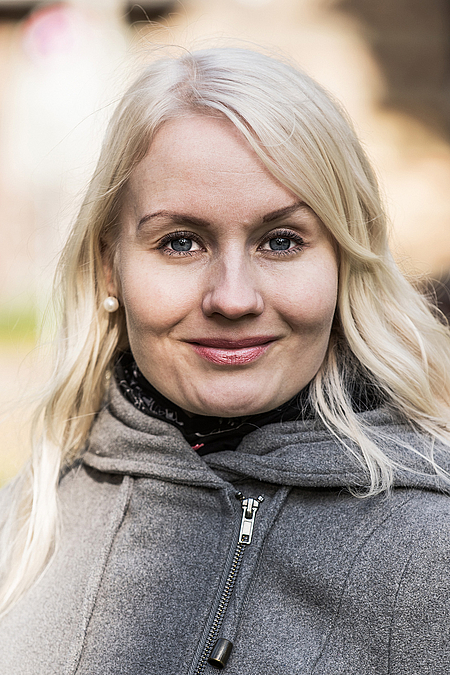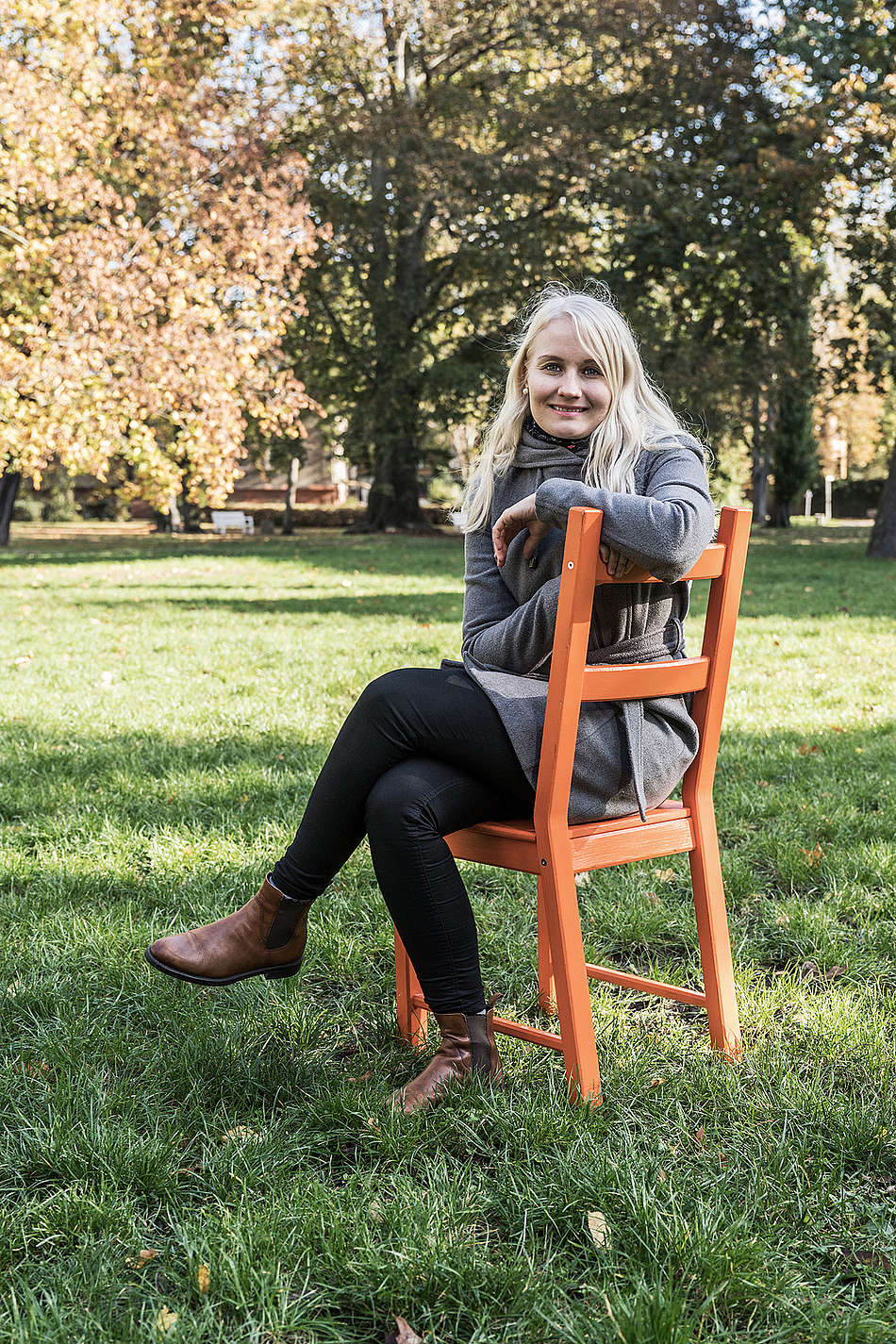Like mother, like child - Humboldt research fellow from Finland explores maternal stress during pregnancy and its effects on the offspring
The Finnish psychologist and scientist Saara Nolvi explores how maternal stress affects the cognitive and emotional development of the child in the womb. With the aim to deepen her research and to increase her knowledge of the German language, she came to Berlin with a Humboldt Research Fellowship funded by Stiftung Charité. We visited her to take a look at her workplace at Charité in Berlin Mitte.
In the morning, when Saara Nolvi arrives at the Institute of Medical Psychology, and starts to work on her research project, she is analyzing and comparing large amounts of data from over 100 mothers and their children from independent birth cohorts collected in Finland and the US. The families have been followed from the time of the pregnancy until five years of the child’s age. How stressed were the mothers? Did the children display any problems with regard to their emotional and cognitive development? And how are these linked with the brain characteristics of the child?
Saara has been following these questions for years. First, she obtained a Master’s degree in Special Education, and then she studied Psychology, having a PhD in the field of child psychiatry today. In a clinic in Turku, a town situated in the Southwest of Finland close to the sea and known for its beautiful skerry landscape, she treats children and adolescent with conditions like attention-deficit/hyperactivity disorder (ADHD), depression, or anxiety disorders. Saara wants to get to the bottom of the early biological and neural causes of such emotional disorders. In her research work, she examines the brain areas associated with the early development of human emotional and cognitive functioning. The MRI (magnetic resonance imaging) scans of the brains of those children, whose mothers were especially stressed, revealed, indeed, conspicuous neuronal structures relevant for later development and susceptibility to disease.
Saara explains that hearing about this connection, thus obtaining a potential explanation of the difficulties the children encounter, may help professionals to intervene before the neural basis for adverse development is formed. Both in her clinical work and her research, the highest motivation for Saara is to help the families, to create awareness, and to foster prevention bot at the clinical and the policy level.
In her daily professional routine in Finland research and clinical work alternate. During her 12-month fellowship in Berlin, Saara is focusing entirely on her research, making this time very special for her. Being able to pursue her research at the highly renowned Charité together with outstanding experts in her field, such as her host Prof. Dr. Claudia Buss, has been both her biggest challenge and her biggest success on her scientific career path so far.
However, she still wants to combine research and patient care in the future, because she highly values the input and experiences from both sides. She believes that the findings from clinical work can enhance research and vice versa.
Speaking about living in Berlin, Saara really likes the history and its traces visible at every corner of the city. She enjoys Berlin’s diversity and its cultural scene. Since she loves to live close to nature, she is also very happy about the good connections of the public transport bringing her quickly to her workplace in the city center of Berlin Mitte. Asked about some recommendations for places to see in the free time, she immediately suggested a visit to Potsdam, the capital of the German federal state Brandenburg surrounding Berlin.
When Saara returns to Finland, besides her clinical work, she will continue to work on her research project about the effects of prenatal maternal stress. The children, the young adults, and their families, that she had taken care of before leaving for Berlin, are already looking forward to her return to Turku.

Funding Program
Humboldt Research Fellowships at BIH
Funding period
2018 -2019
Project title
Prenatal stress, structural characteristics of neonatal brain and child self-regulation development: a follow-up study in two birth cohort settings
Research area
Psychiatry, psychology
Institution
Charité – Universitätsmedizin Berlin, Institute of Medical Psychology
Since 2018
Post-doctoral researcher, Institute of Clinical Medicine, FinnBrain Birth Cohort Study, University of Turku, Finland
2013 - 2017
PhD, Department of Child Psychiatry, Faculty of Medicine, University of Turku, Finland
2011 bis 2013
Master of Arts, Psychology, University of Jyväskylä, Finland
2011 bis 2013
Master of Arts, Special Education, University of Jyväskylä, Finland
We are closing our visit with a little question game. If she could have dinner with three persons of her choice, alive or dead, whom would she choose? This would be Saara’s dinner circle:
- Barack Obama, because Saara was highly impressed by Michelle Obama’s autobiography Becoming
- Professor Vivette Glover (Professor at the Imperial College London), because she is a great authority in the field of perinatal psychobiology
- David Bowie†, because Saara likes his music and his inspiring personality
March 2020/Marie Hoffmann
